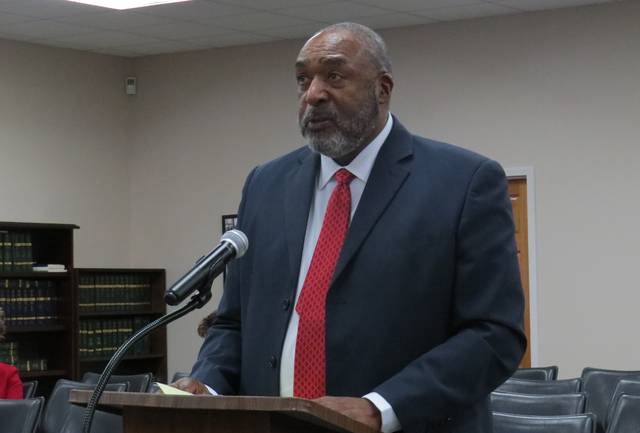HAMLET — The Richmond County School Board voted unanimously this week to enact changes to the school system’s policy on child safety which will now require school personnel to report potential crimes against juveniles to local law enforcement. The new policy also lays out a new training program to address the threat of human trafficking.
The changes apply to Policy 4240 — which is now renamed to “Child Abuse and Related Threats to Child Safety” — and will bring Richmond County Schools into compliance with new legislation and allow the system to move forward in implementing the new requirements, according to Associate Superintendent Dennis Quick.
In addition to school employees, school volunteers and contractors are now required to report suspected abuse to the county child welfare agency and any mistreatment that occurs in a child care facility to the Division of Child Development and Early Education.
These personnel must also inform local law enforcement if they know or should reasonably know that a child has been the victim of the following:
• a sexual offense, meaning inappropriate sexual contact,
• an offense that inflicts serious bodily injury by nonaccidental means,
• an attempt, solicitation, or conspiracy to commit either of the above offenses or aiding and abetting those offenses,
• and misdemeanor child abuse.
Those who make a report to law enforcement “in good faith” have no criminal liability, while those who don’t are subject to discipline by the school and are subject to civil and criminal action, under the amended policy. Under the requirements for reporting to the county child welfare agency and the Division of Child Development and Early Education, contractors and volunteers can additionally be restricted from school property and lose privileges of contracting or volunteering with the school system.
In investigating reports, principals can now establish a liaison with local investigating agencies, in addition to state agencies. The changes give local law enforcement the power to interview a child suspected of being a victim of abuse by their parent, guardian or custodian on school campuses and during school hours. If the parent, guardian or custodian is not the suspected perpetrator of the abuse, law enforcement must first seek their permission before interviewing the child on school campuses during school hours about a case.
New sex trafficking prevention training
The new Child Sexual Abuse and Sex Trafficking Training Program will be held in even numbered years and be available to teachers, instructional support personnel, principals and assistant principals.
The program will include at least two hours of training related to best practices from the field of prevention, the grooming process of sexual predators, the warning signs of sexual abuse and sex trafficking, how to intervene when sexual abuse or sex trafficking is suspected or disclosed, legal responsibilities for reporting sexual abuse or trafficking and resources available for assistance.
The News & Observer reported in 2018 that Libby Magee Coles, chairwoman of the state Human Trafficking Commission, said North Carolina has among the highest rates of human trafficking in the nation, even though there have only been nine human trafficking convictions, five of which were involving children, in North Carolina courts since 2013.
Say Something
Faculty participated in training in September and October 2019 for the Say Something Anonymous Reporting System, which is a partnership with the North Carolina Department of Public Instruction and the Sandy Hook Promise. The program includes an anonymous mobile app, website and crisis hotline for students and faculty to report information.
The school system’s institutions with students from grades 6 through 12 must have a team of three to five people who will report to a district team made up of five to six people. The suggested members of these teams are: the principal, assistant principal, school resource officer, a counselor, social worker or school psychologist. These teams can fuse with safety committees that are already in place, Quick said.
The types of activity to be anonymously reported under this program will include bullying, drug abuse, criminal activity such as possession of a weapon, and students who may be having suicidal ideation. Quick said this information, once reported, goes into a “clearing house” for “triage” of the situation, then to the district team who sends it back to the reporting school’s team to act on that information by getting the resource officer or 9-1-1 involved, if necessary.
Board Member Pat Campbell asked Quick if the clearing house and triage phases of this new process would be too many steps to respond to an immediate problem.
“If something is happening right now that needs attention, will some of those steps be eliminated?” Campbell asked. Quick responded that a life threatening situation will “immediately” go to triage and be sent back to the reporting school to take action.
Also under the Sandy Hook Promise is the SAVE (Students Against Violence Everywhere) program, which can either be stand-alone group of students committed to reducing violence or be a part of an existing student organization. The next phase in implementing Say Something is to train students how to recognize the signs so they know when to report via the app, according to Quick.
The first student training will be held next month, and Quick said that once the students are trained “the program will go live.”

